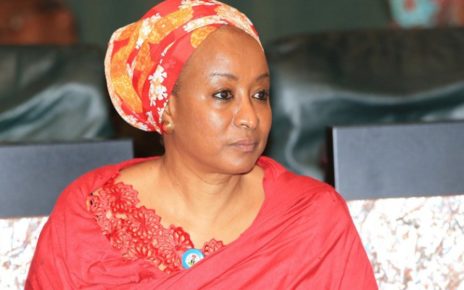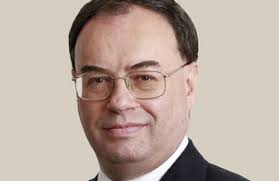As prospects for more crude oil demand continue to brighten as global activity picks up steam amid shortfalls in Organisation of Petroleum Exporting Countries (OPEC) member-countries subsist, Nigeria on Tuesday indicated intention to formally seek upward review of its production quota by the oil cartel.
Currently indications showed that underinvestment and maintenance work had hampered the ability of the OPEC and its allies to raise production.
For instance, Reuters projected on Tuesday that despite the lifting of production ceilings for its members in August, the OPEC+ group supply could be insufficient to meet the world’s growing oil demand.
In response, OPEC+ agreed to increase oil production starting in August by another 400,000 bpd each month. But not all producers have responded to the call for more barrels.
Nigeria, Angola and Kazahkstan have been unable to lift their oil production to meet the call for more oil. In Kazakhstan, the shortfall was due to maintenance works in its Tengiz field which ended mid-September while Angola and Nigeria’s inability to meet their quotas had been linked to years of underinvestment in their hydrocarbon resources industry.
A source linked Nigeria’s oil output shortfall in August to the uncertainties over the passage of the 2021 Petroleum Industry Bill (PIB).
The OPEC has speculated stronger demand for its crude on a combination of rising global fuel consumption and output disruptions elsewhere.
The current plan is for OPEC+ to continue increasing production by another 400,000 bpd in October and another 400,000 bpd in November.
To take advantage of the planned review, Nigeria has opened discussions with the OPEC, for an increase in its oil production quota to about 2.2 million barrels per day.
Minister of State for Petroleum Resources, Timipre Sylva, confirmed to journalists on the sidelines of the Gastech conference in Dubai on Tuesday that: “What we’re getting right now is 1.74 million barrels per day (bpd) we think we can do about 2.2 million bpd.”
The Minister said Nigeria was currently producing below its 1.74 million bpd quota due to technical challenges, but expressed optimism that the country can achieve the 2.2 million bpd production level in six months.
Sylva said that he didn’t expect the OPEC+, to take any extraordinary measures when they meet next month, pointing out that current oil prices are hovering at a very “comfortable level” and that $70 a barrel is an optimal figure.
Apparently trying to explore the investment benefits that come in form of fiscal incentives in the Petroleum Industry Act 2021 provisions, some multinational and indigenous oil and gas companies are mulling plans to revitalize their abandoned oil fields.
This is even as analysts have observed that some Joint Venture (JV) partners with the Nigerian National Petroleum Corporation (NNPC) were also considering new measures to optimise production from matured fields as well as spud oil from near abandoned fields.
Commenting on the recently enacted Petroleum Industry Act 2021, the Group Managing Director of the NNPC, Mele Kyari, at an energy forum in Abuja, said the legislation had introduced sundry fiscal incentives that will guarantee transformation of the industry.
He explained: “As a matter of fact by six months the PIA transition committee would have come up with a clear implementation process. Although it has been given a one year mandate to provide all necessary guidelines for seamless transition we have fully engaged the committee and Nigerians will see a clearer understanding of the law.”
With the PIA enacted, the NNPC is expected to divest from some key assets and deploy funds raised to oil production as its planned commercialisation will create opportunities to upscale investments.
A source said: “Nigeria would begin to witness asset development instead of divestment and of course most NNPC/partners are no longer talking of leaving. You hear recently that TotalEnergies is boosting gas development and would champion energy transition and this is what we will expect others to start contemplating”
The latest data from the OPEC cartel indicate that the oil supply deficit will be sustained in the coming months even as its members revive idle production fields. Despite the threat of the delta variant of COVID-19, fuel consumption is recovering while crude production from the North Sea to the U.S. and Mexico comes in lower than anticipated.
The OPEC, in a monthly report published on Monday projected: “The global economic recovery, in combination with a considerable rebound in mobility, significantly lifted oil demand growth in the first half.
“While this dynamic is forecast to soften towards the end of 2021,” the overall trend is positive”, the report stated.
The global demand for OPEC’s crude was revised up by 260,000 barrels a day for this year, compared with last month’s estimate, largely due to supply disruptions outside the group. North American output was curbed by Hurricane Ida and a fire at an offshore platform in Mexico, according to the report. North Sea production has also been lower than expected this quarter.
The demand for OPEC crude was revised higher by 1.12 million barrels a day for 2022. Global consumption is expected to increase by 4.2 million barrels a day next year to 100.8 million barrels a day, 980,000 barrels a day higher than last month’s estimate and exceeding pre-pandemic levels.
Recall that OPEC’s production rose by 151,000 barrels a day to 26.76 million barrels a day in August still significantly below the average global demand for OPEC crude in the third quarter, creating production space for the organization and its allies to gradually revive 400,000 barrels a day of idle production each month, in line with the July OPEC+ agreement.




